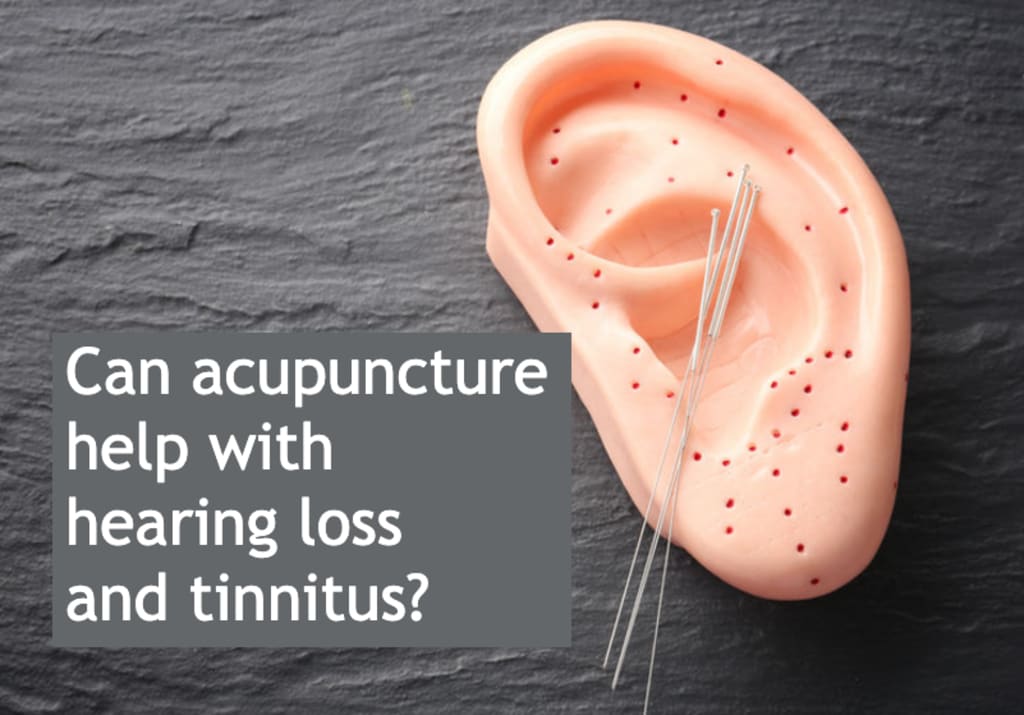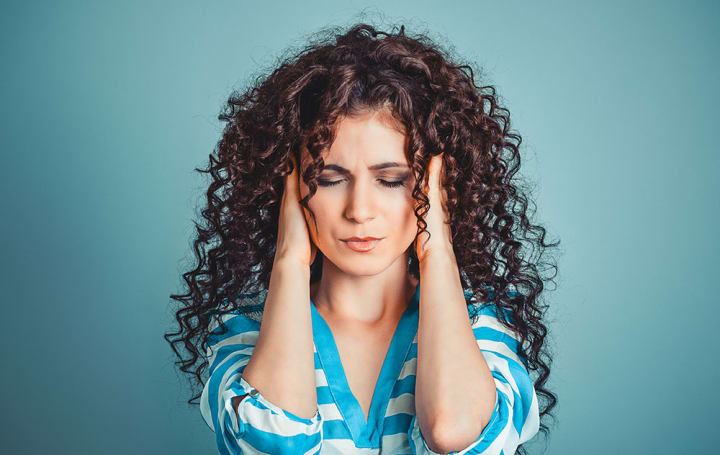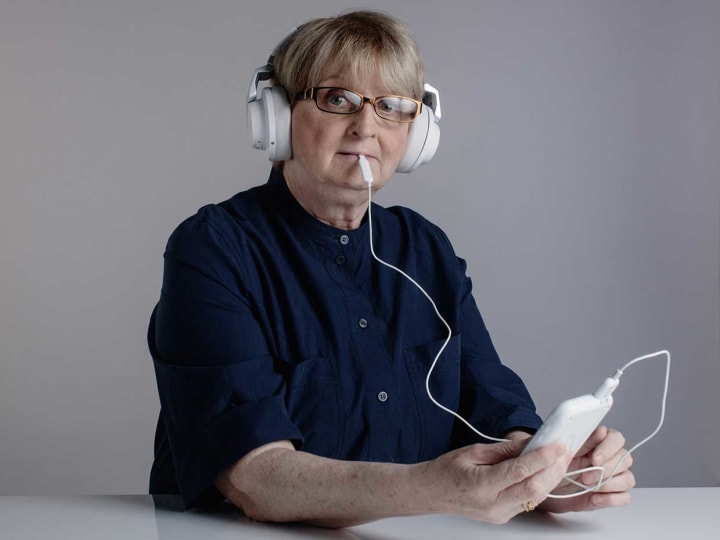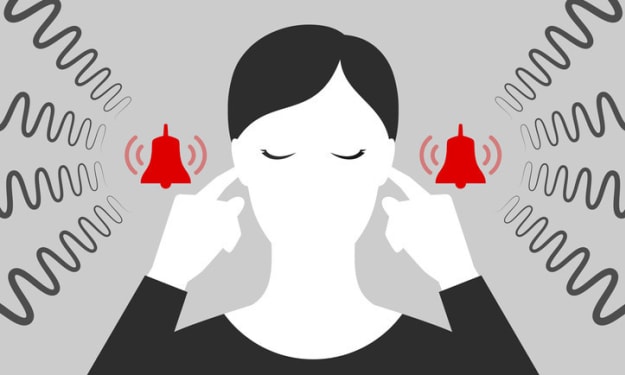Can acupuncture make tinnitus worse | Acupuncture for tinnitus relief
Click here to learn more

Tinnitus is a condition that affects millions of people around the world. It is characterized by a ringing or buzzing sound in the ears that can be persistent and debilitating. While there is no known cure for tinnitus, there are a number of treatments available that can help to alleviate its symptoms. One such treatment is acupuncture.
Acupuncture is an ancient Chinese medical practice that involves the insertion of thin needles into specific points on the body. It is believed to help promote healing and alleviate pain by stimulating the body's natural energy flow, or qi.
In recent years, acupuncture has gained popularity as a treatment for tinnitus. While there is still much research to be done on the efficacy of acupuncture for tinnitus relief, many people who have tried it have reported significant improvements in their symptoms.
In this article, we will take a closer look at acupuncture for tinnitus relief, including what it is, how it works, and what the current research says about its effectiveness.
What is Acupuncture?
Acupuncture is a traditional Chinese medical practice that dates back more than 2,500 years. It is based on the belief that the body has a natural flow of energy, or qi, that travels along pathways known as meridians. When this flow of energy is disrupted, it can lead to illness and disease.
Acupuncture involves the insertion of thin needles into specific points along the body's meridians. The needles are typically left in place for anywhere from a few minutes to an hour, depending on the treatment being administered.
The goal of acupuncture is to stimulate the body's natural healing processes and restore the flow of energy along the meridians. It is believed that acupuncture can help to alleviate pain, reduce inflammation, and promote overall health and well-being.
How Does Acupuncture Work for Tinnitus?
While the exact mechanisms of how acupuncture works for tinnitus are not yet fully understood, there are a number of theories as to how it may help.
One theory is that acupuncture helps to increase blood flow to the ear, which can help to reduce inflammation and promote healing. It is also believed that acupuncture may help to reduce the sensitivity of the auditory system, which can help to alleviate the symptoms of tinnitus.
Another theory is that acupuncture may help to reduce stress and anxiety, which are known to exacerbate tinnitus symptoms. By promoting relaxation and reducing stress, acupuncture may help to alleviate the severity of tinnitus symptoms.
What Does the Research Say?
While there is still much research to be done on the efficacy of acupuncture for tinnitus relief, there have been a number of studies conducted in recent years that have shown promising results.
A 2015 study published in the Journal of Acupuncture and Meridian Studies found that acupuncture was effective in reducing the severity of tinnitus symptoms in a group of 70 patients. The study participants received acupuncture treatments twice a week for six weeks, and were found to have significant improvements in their tinnitus symptoms at the end of the treatment period.
Another study published in the Journal of Traditional Chinese Medicine in 2016 found that a combination of acupuncture and traditional Chinese medicine was effective in reducing the severity of tinnitus symptoms in a group of 60 patients. The study participants received acupuncture treatments twice a week for four weeks, along with a regimen of Chinese herbal medicine. At the end of the treatment period, the participants were found to have significant improvements in their tinnitus symptoms.
While these studies are promising, it is important to note that they are still relatively small in scale and further research is needed to confirm their findings.
What to Expect During an Acupuncture Session for Tinnitus
If you've never tried acupuncture before, you might be wondering what to expect during a session for tinnitus. Here's a brief rundown:
Consultation: Your acupuncturist will begin by asking you about your medical history, your tinnitus symptoms, and any other health concerns you may have. This will help them determine the best course of treatment for you.
Preparation: You'll be asked to lie down on a treatment table, usually face-down or face-up. The acupuncturist will clean the area of skin where they'll be inserting the needles.
Insertion: The acupuncturist will insert needles into specific points on your body, depending on your individual needs. You may feel a slight prick or tingling sensation, but most people find the process painless.
Relaxation: Once the needles are in place, you'll be left to relax for about 20–30 minutes. Many people find this time to be very calming and rejuvenating, and some even fall asleep.
Removal: The acupuncturist will remove the needles and dispose of them safely.
How Many Sessions of Acupuncture Are Needed for Tinnitus Relief?
The number of acupuncture sessions needed for tinnitus relief can vary widely depending on the individual. Some people may notice improvement after just one session, while others may require several sessions to experience significant relief.
In general, acupuncture is a cumulative therapy, meaning that the effects build up over time. Your acupuncturist will work with you to create a treatment plan that's tailored to your specific needs and goals.
It's important to remember that acupuncture is not a one-size-fits-all solution. What works for one person may not work for another. It's also important to seek out a licensed and experienced acupuncturist who specializes in treating tinnitus.
Other Natural Remedies for Tinnitus
Acupuncture is just one of many natural remedies that can help alleviate tinnitus symptoms. Here are some other options you may want to consider:
Ginkgo biloba: This herbal supplement has been shown to improve blood flow to the ears and reduce tinnitus symptoms in some people.
Zinc supplements: Some studies have suggested that taking zinc supplements may help reduce tinnitus symptoms in people with a zinc deficiency.
Magnesium supplements: Like zinc, magnesium is an essential mineral that may help reduce tinnitus symptoms in some people.
Vitamin B12: A deficiency in vitamin B12 has been linked to tinnitus in some cases. Taking a supplement or eating foods rich in vitamin B12, such as fish, eggs, and dairy products, may help.
Stress management: As we mentioned earlier, stress can exacerbate tinnitus symptoms. Practicing stress-management techniques such as meditation, yoga, or deep breathing exercises may help reduce stress and improve tinnitus symptoms.
It's important to note that while these natural remedies may be helpful for some people, there is no one-size-fits-all solution for tinnitus. It's always a good idea to talk to your healthcare provider before starting any new supplement or natural remedy.

When to Seek Medical Attention for Tinnitus
While tinnitus is usually not a sign of a serious underlying condition, it's still important to seek medical attention if you experience any of the following symptoms:
Sudden onset of tinnitus
Tinnitus that's accompanied by hearing loss or vertigo
Tinnitus that's accompanied by facial weakness, numbness, or tingling
Tinnitus that's persistent and interferes with your daily life
If you experience any of these symptoms, it's important to schedule an appointment with your healthcare provider. They may refer you to an audiologist or ear
CONCLUSION
In conclusion, acupuncture has been found to be an effective complementary therapy for tinnitus, with several studies showing promising results. Acupuncture involves the insertion of thin needles into specific points on the body to stimulate the flow of energy and promote healing. Acupuncture for tinnitus involves inserting needles into specific points on the ear and body that are believed to correspond with the affected areas of the ear.
Acupuncture has been found to provide relief for tinnitus symptoms, including reducing the intensity and frequency of ringing or buzzing in the ears. It is also considered a safe and non-invasive therapy, with few reported side effects. However, it is important to note that acupuncture is not a cure for tinnitus, and it may not work for everyone.
Before trying acupuncture for tinnitus, it is important to speak with a qualified acupuncturist and a healthcare provider to ensure it is safe and appropriate for your individual needs. Acupuncture may be used in combination with other therapies, such as cognitive behavioral therapy or sound therapy, to provide the most effective relief for tinnitus symptoms.
Overall, acupuncture is a promising therapy for tinnitus that may provide relief for those suffering from the condition. While more research is needed to fully understand its effectiveness, many people have reported positive results from acupuncture treatments.
So lets's get this sorted out!
Say goodbye to tinnitus and hello to peace of mind! Try our 100% natural blend support today and start experiencing the relief you deserve. Don't let tinnitus control your life any longer - take action now and discover the power of nature."
Click Here to Try our 100% natural blend support today

Affiliate Disclosure:
There are links on this site that can be defined as affiliate links. This means that I may receive a small commission. If you purchase something through links provided on this website.
About the Creator
Your GUIDE
Say goodbye to tinnitus and hello to peace of mind! Try our 100% natural blend support today and start experiencing the relief you deserve. Don't let tinnitus control your life any longer - take action now and discover the power of nature
Enjoyed the story? Support the Creator.
Subscribe for free to receive all their stories in your feed. You could also pledge your support or give them a one-off tip, letting them know you appreciate their work.






Comments
There are no comments for this story
Be the first to respond and start the conversation.